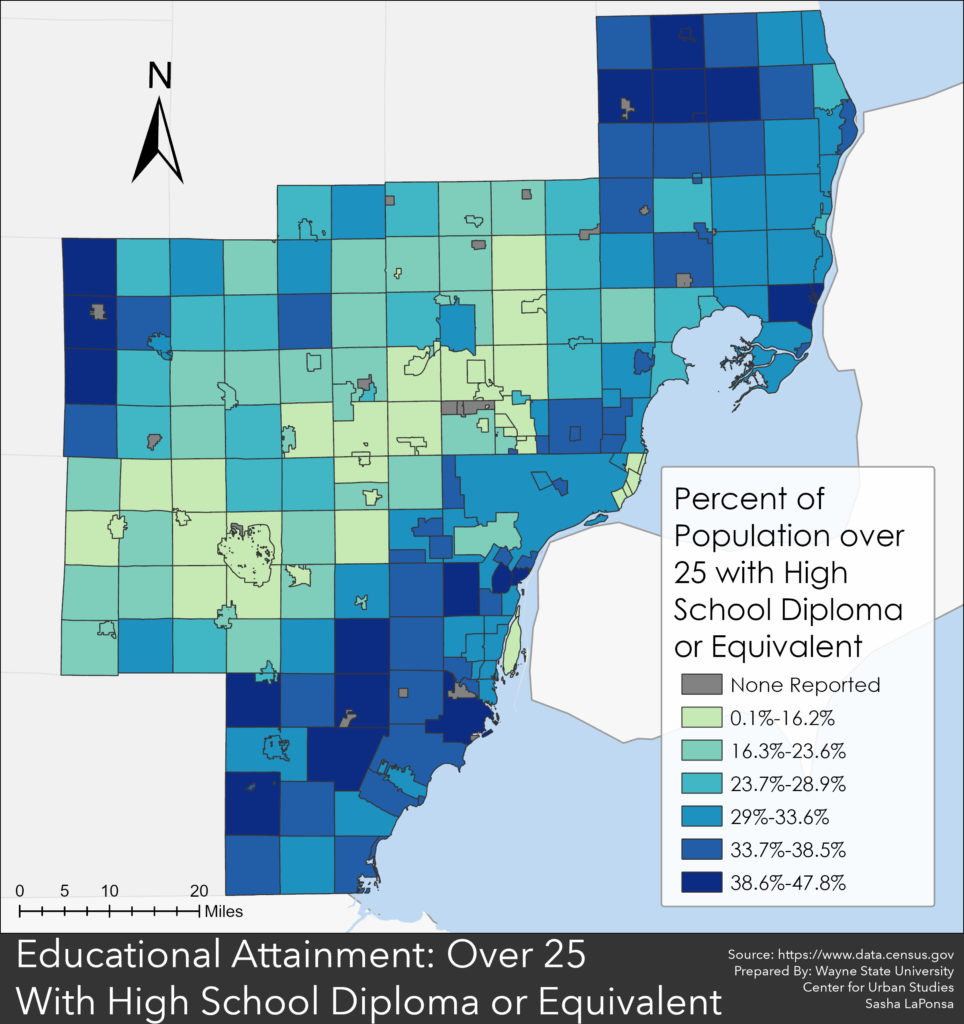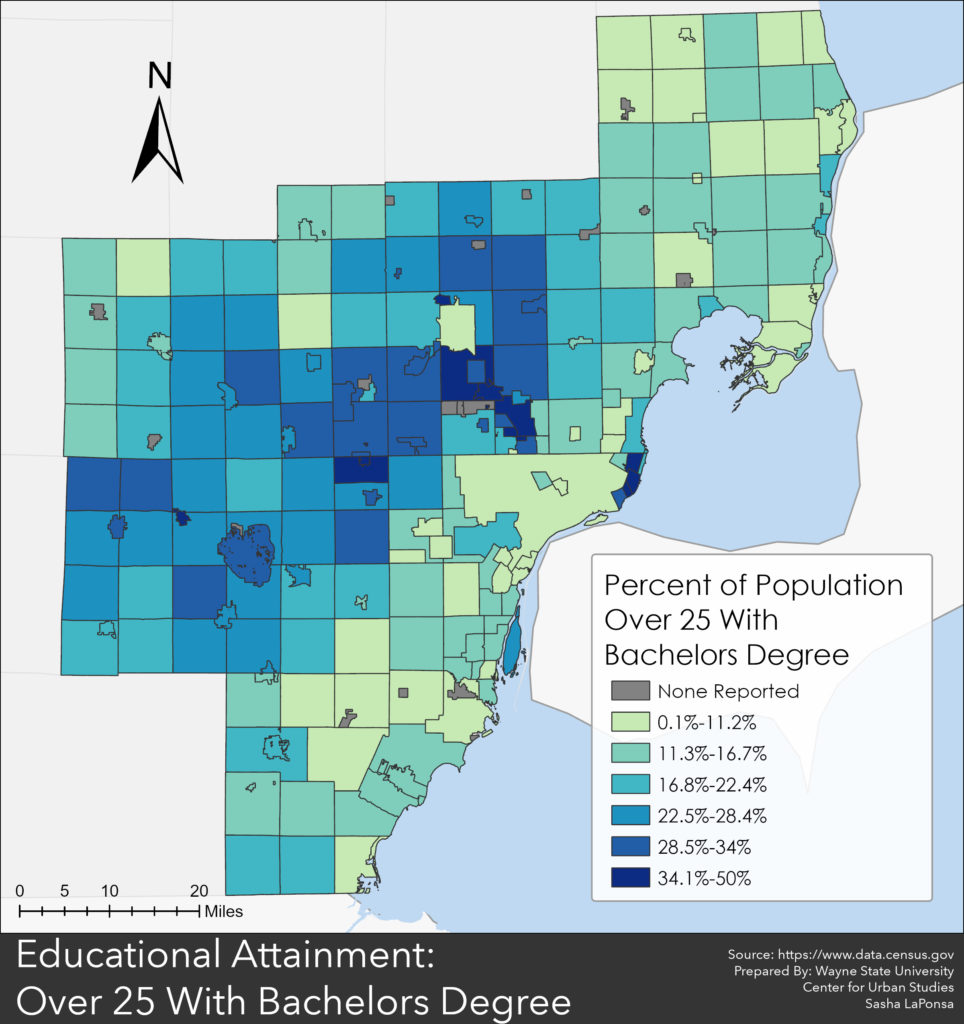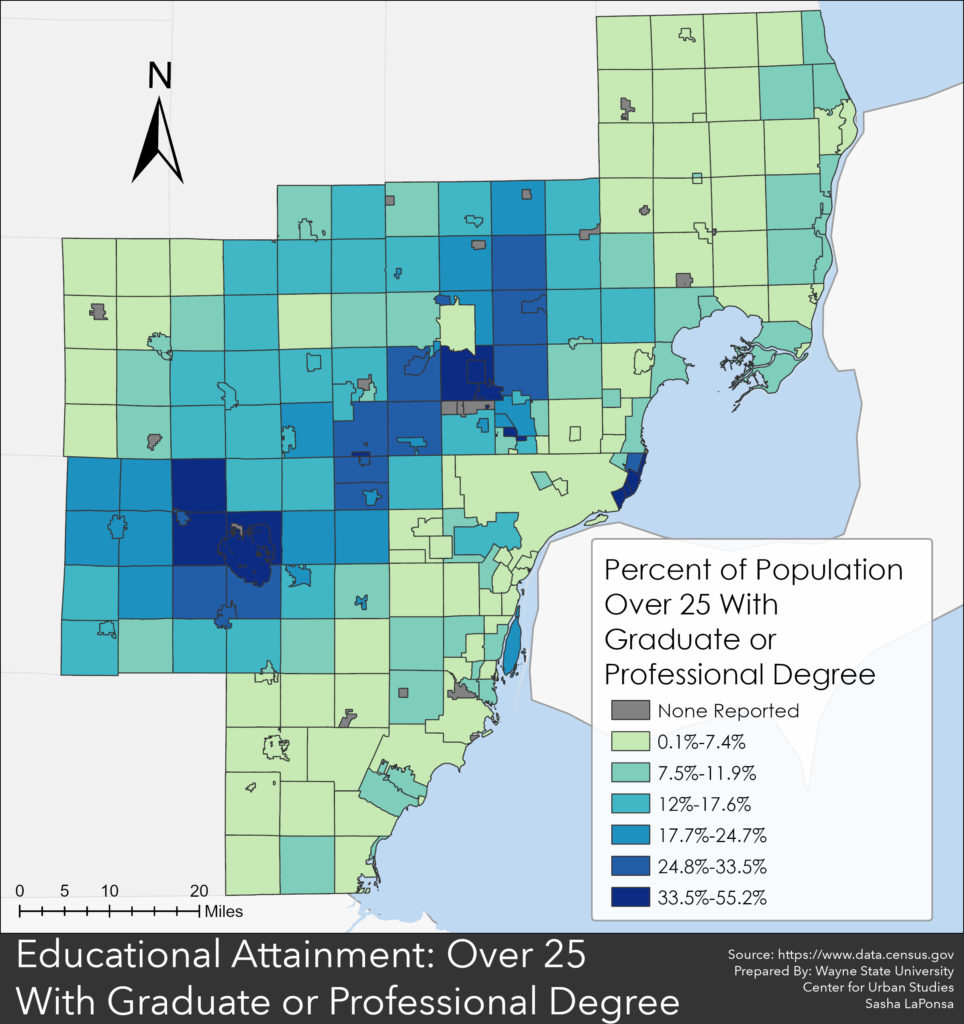Understanding the educational attainment levels of a geographical location is important because it impacts employment rates, average income levels, job markets and other socioeconomic factors. Educational attainment is also dependent on several factors including, geography, family structure, transportation and access to educational opportunities. The majority of communities in Southeastern Michigan have 25 percent or more of their 25 years of age and older population with only a high diploma or equivalent. Furthermore, there are 14 communities in the region where 40 percent or more of that specific age population who had only attained a high school diploma or equivalent, according to 2019 data from the US Census Bureau. In Southeastern Michigan, Cottrelleville Township in St. Clair County had the highest percentage of residents 25 years of age or older with only a high school diploma at 48 percent. Exeter Township in Monroe County had the second highest percentage of residents with only a high school diploma at 44 percent. Both of these communities are outside of the inner-ring urban suburbs and are much less densely populated. There were several inner-ring suburbs though where a high school diploma was often the highest level of educational attainment. For example, in both Ecorse and Lincoln Park and 40 percent of the 25 years of age or older population only had a high school diploma or equivalent; in Hazel Park that percentage was 37 percent. In the City of Detroit 32 percent of 25 years of age or older population had only a high school diploma or equivalent. Pleasant Ridge had the lowest percentage of residents with only a high school diploma at 5 percent.

Just as Pleasant Ridge had the lowest percentage of residents 25 years of age or older with only a high school diploma it also had the highest percentage of residents in that age frame with a bachelor’s degree. In Pleasant Ridge 40 percent of the 25 years of age or older population had a bachelor’s degree; the same was true for Grosse Pointe Farms and Lake Angelus. Overall, Oakland and Washtenaw counties had the highest percentage of residents 25 years of age or older with a bachelor’s degree. While Cottrelleville Township in St. Clair County had the highest percentage of residents with only a high school diploma or equivalent, it did not have the lowest percentage of residents with a bachelor’s degree. Ecorse, Hamtramck and Highland Park all had populations 25 years of age or older where only 7 percent of the residents had a bachelor’s degree. In Detroit, 9 percent of the 25 years of age or older had a bachelor’s degree. While there was a concentration in Detroit and its direct neighbors with low college education attainment, this was also true for the more rural counties. Clay Township in St. Clair County had among the lowest percentage of residents 25 years of age or older with a bachelor’s degree at 9 percent, as did London and Luna townships. Several of the communities in St. Clair and Monroe counties had 15 percent or less of residents 25 years of age or older with a bachelor’s degree.

As one may expect, those with among the highest percentage of residents with a bachelor’s degree also had higher percentages of residents with a master’s degree. In Ann Arbor Township 55 percent of the 25 years of age or older population earned a master’s degree; in the City of Ann Arbor 44 percent had the same level of educational attainment. These were the highest percentages in the region of those who obtained a master’s degree. In the City of Detroit 6 percent of the 25 years of age or older population earned a master’s degree. In areas such as St. Clair and Monroe counties the percentage with a masters were mostly in the single digits; this was also true for many of the immediate inner-ring suburbs.

While there is a high percentage of residents 25 years of age or older with only a high school diploma Gov. Gretchen Whitmer recently unveiled a program that promises free community college tuition to residents 25 and older. This program is to make it easier for Michigan residents to earn a form of higher education. According to the State of Michigan, about 4.1 million of Michigan’s 10 million residents qualify for the program, which is called Michigan Reconnect. Furthermore, about 3 million of those who qualify are between the ages of 25-64, according to Census data.